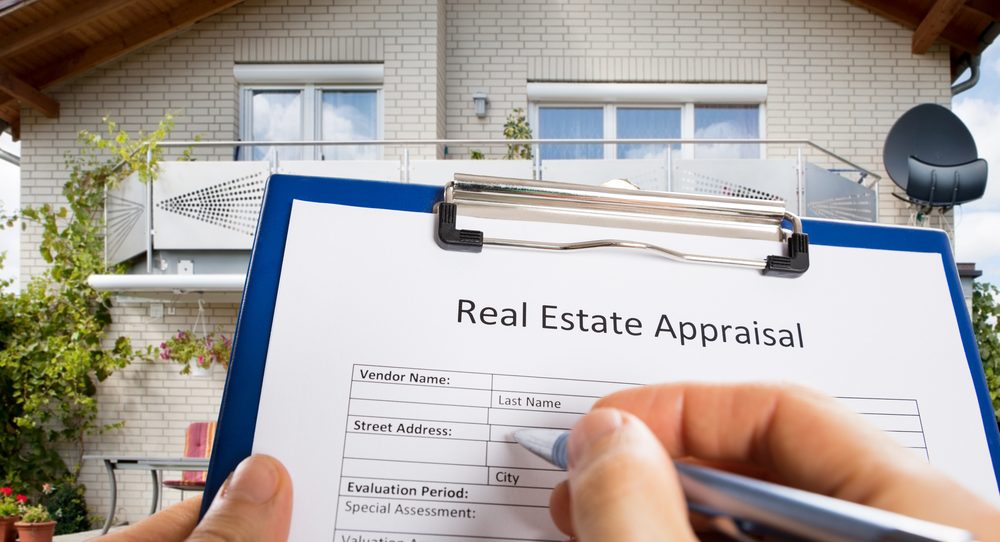Home Appraisal

Renting vs Buying
November 5, 2021
Real Estate Closing Process for a Sale Transaction
November 5, 2021A home or property appraisal is an independent, third-party, unbiased professional’s assessment of a home and property’s fair market value. An appraisal is based on a variety of factors including the size and age of a home, the condition a home is in, the condition a property is in, a home’s features and amenities, the home or property’s previous sales price, the comparable final sale prices for other comparable homes and more.
If you plan on purchasing a new home with a mortgage or refinancing your current loan, you will most likely need to order an appraisal. The appraisal is a key component of the home buying process, and important to both you and your lender.
The bank will want to know that the home financing they provide can be supported by the collateral, and you will want to make sure you’re not paying more than the home is worth.
Cost of Home Appraisal
The cost of home appraisal may vary from property to property. It depends upon type of the property, location and size. Home appraisals typically cost anywhere from $250 to $750, with most falling somewhere in between $300 and $600.
Multi-unit properties and properties in rural areas will usually cost more to be appraised than a single-family residence in a densely populated area. Additionally, a condo appraisal will generally cost the same as a home appraisal, despite the former often being much smaller. This could be because appraisers must still assess the entire building/complex, which can be time consuming as well.
Home Appraisal Process
Home appraisal process consists of interior and exterior photos, comparison sales, and a complete cost breakdown of the property, such as square footage, lot size, the number of bedrooms and bathrooms, and any home improvements. This type of appraisal is a blend of both a market and cost approach to determine its fair market value.
The cost approach establishes the value of the home by determining what the cost would be to rebuild the structure from the ground up. The value approach determines value using comparison sales in the immediate area that have sold within a recent period of time.
When the appraiser arrives at your home, they will take both interior and exterior photos of the property and jot down lots of notes as they move from room to room. The home appraisal process may take an hour or less.
They will also take photos of recently sold, comparable homes in the neighborhood that are being used in the report. They are broken down in the appraisal report as well, and compared to the subject property side-by-side. Each comparison sale is given or deducted value in a number of categories based on how it stacks up against the subject property. The net value of the comparison sales are then averaged to come up with a median appraised value for the subject property.

Sale Price and Appraised Value
It is entirely possible for a home to sell at its exact appraised value, but appraisals are typically ordered by the bank after a buyer and seller agree to a certain purchase price. What generally happens is the appraiser affirms the value found in the purchase contract.
Sometimes they will assign a slightly higher value, and other times they won’t be able to find a value to substantiate the sale price. This can happen if the buyer offered a lot more than asking to beat out other bidders. It is not to say they paid too much, it is just that the other comparable properties sold for significantly less in the professional opinion of the appraiser.
If Appraisal is Lower Than the Purchase Price
One issue that happens often is the appraised value coming in lower than the agreed upon purchase price. This is a common problem because home buyers will often overpay for their dream home, either because of a bidding war or because of an emotional attachment.
This could be a problem as your loan would now require private mortgage insurance because the loan-to-value (LTV) ratio would exceed 80%; that is if the lender is willing to offer you a loan above 80% LTV. The solution would be to either ask for a review of the appraisal, renegotiate the purchase price with the seller, look into other loan programs, or put more money down, assuming you have extra cash on hand.
Conclusion
Home appraisal is an important part of the home buying process as well as the processes associated with insuring your home and refinancing your home. As a homeowner looking to refinance your home, there are some things you can do to help ensure that a home appraisal goes through successfully for you. These include staging your home, keeping your home in good condition, and making upgrades that will add value to your home.
As a home buyer, you will want the appraisal to come through at the agreed-upon sale price or to be greater than the agreed-upon sale price set out in your contract; this will mean that your sale will proceed as planned. When everything goes smoothly, the home appraisal is just another box to check on a closing checklist. When the appraisal value is lower than expected, the transaction can be delayed or even canceled. Regardless of which situation you encounter in your home buying, selling, or refinancing experience, a basic understanding of how the appraisal process functions can only work in your favor.
About the Author
Abdul Moqeet
Assistant Manager, Real EstateTreadstone Associates
1 (844) 900 1070



